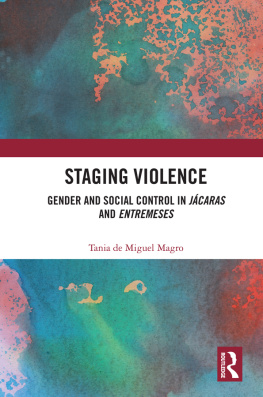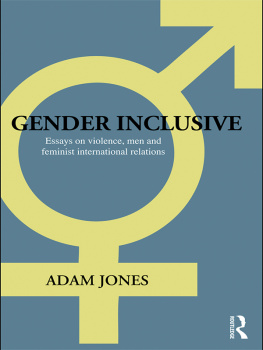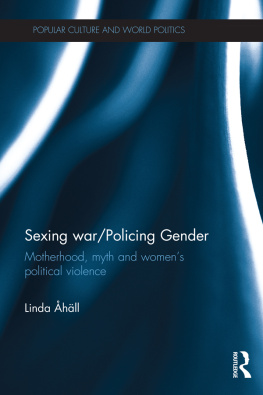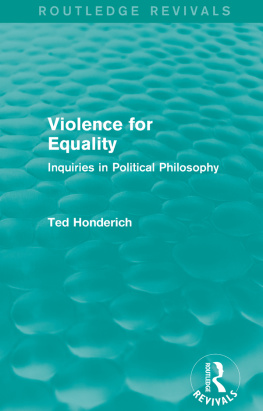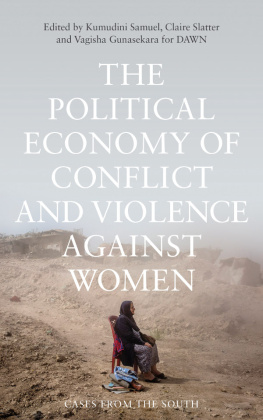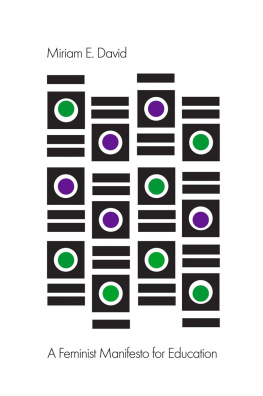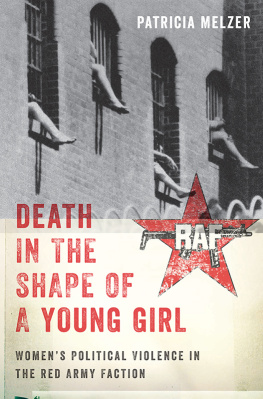Representations of Lethal Gender-Based Violence in Italy Between Journalism and Literature
This book discusses femicide in Italy, and the cultural conversations that have resulted from feminist discourse on lethal violence against women entering the mainstream, by analyzing journalistic inquiries and literary works produced after 2012.
In a global and national context where activisms goals are mainly discursive, this study deepens our understanding of the role played by written narratives in the critique of a public interest matter such as gender-based violence. The first part of the book is dedicated to the analysis of three journalistic inquiries published in book format that focus on one or more cases of femicide that happened on the Italian peninsula. The second section draws on the concept of feminist rewriting to propose the analysis of a heterogeneous body of literary texts that explore some of the most controversial and notorious femicide cases covered by previous journalistic, historical, or mythical narratives, before demonstrating the close connection between theoretical and narrative discourse within the analyzed texts.
This is a fascinating case study contributing to global understandings of gender-based violence, which will be important for researchers in gender studies, sociology, and media studies.
Nicoletta Mandolini is FCT researcher at CECS, Universidade do Minho, Portugal. At CECS, she works on the project Sketch That Story and Make It Popular using Graphic Narratives in Italian and Lusophone Feminist Activism Against Gender Violence (www.sketchthatstory.com). She was previously FWO postdoctoral researcher at KU Leuven, Belgium, and received her PhD from University College Cork, Ireland. Funded by the Irish Research Council, her doctorate project focused on the representation of gender-based violence and feminicide in contemporary Italian journalistic and literary narratives. She is coeditor of Rappresentare la violenza di genere. Sguardi femministi tra critica, attivismo e scrittura (2018), and the author of several articles.
Focus on Global Gender and Sexuality
https://www.routledge.com/Focus-on-Global-Gender-and-Sexuality/book-series/FGGS
Trans Dilemmas
Stephen Kerry
Gender, Sport, and the Role of the Alter Ego in Roller Derby
Colleen E. Arendt
The Poetry of Arab Women from the Pre-Islamic Age to Andalusia
Wessam Elmeligi
Interviews with Mexican Women
We Don't Talk About Feminism Here
Carlos M. Coria-Sanchez
Pornography, Indigeneity, and Neocolonialism
Tim Gregory
Reading Iraqi Women's Novels in English Translation
Iraqi Women's Stories
Ruth Abou Rached
Gender Hierarchy of Masculinity and Femininity during the Chinese Cultural Revolution
Revolutionary Opera Films
Zhuying Li
Representations of Lethal Gender-Based Violence in Italy Between Journalism and Literature
Femminicidio Narratives
Nicoletta Mandolini
Representations of Lethal Gender-Based Violence in Italy Between Journalism and Literature
Femminicidio Narratives
Nicoletta Mandolini
First published 2022
by Routledge
2 Park Square, Milton Park, Abingdon, Oxon OX14 4RN
and by Routledge
605 Third Avenue, New York, NY 10158
Routledge is an imprint of the Taylor & Francis Group, an informa business
2022 Nicoletta Mandolini
The right of Nicoletta Mandolini to be identified as author of this work has been asserted by her in accordance with sections 77 and 78 of the Copyright, Designs and Patents Act 1988.
All rights reserved. No part of this book may be reprinted or reproduced or utilized in any form or by any electronic, mechanical, or other means, now known or hereafter invented, including photocopying and recording, or in any information storage or retrieval system, without permission in writing from the publishers.
Trademark notice: Product or corporate names may be trademarks or registered trademarks, and are used only for identification and explanation without intent to infringe.
British Library Cataloguing-in-Publication Data
A catalogue record for this book is available from the British Library
Library of Congress Cataloging-in-Publication Data
Names: Mandolini, Nicoletta, author.
Title: Representations of lethal gender-based violence in Italy : between journalism and literature : femminicidio narratives / Nicoletta Mandolini.
Description: Abingdon, Oxon; New York : Routledge, 2022. | Includes bibliographical references and index. |
Identifiers: LCCN 2021016225 (print) | LCCN 2021016226 (ebook) | ISBN 9780367636975 (hardback) | ISBN 9780367636999 (paperback) | ISBN 9781003120339 (ebook) | ISBN 9781000424898 (adobe pdf) | ISBN 9781000424942 (epub)
Subjects: LCSH: Journalism--Italy--History--21st century. | Crime and the press--Italy--History--21st century. | Murder--Press coverage--Italy. | Women--Crimes against--Italy--Press coverage. | Murder--Italy--Case studies. | Women--Crimes against--Italy--Case studies. | Feminist criminology.
Classification: .LCC PN5244 .M34 2022 (print) | LCC PN5244 (ebook) | DDC 075.09/05--dc23.
LC record available at https://lccn.loc.gov/2021016225.
LC ebook record available at https://lccn.loc.gov/2021016226
ISBN: 978-0-367-63697-5 (hbk)
ISBN: 978-0-367-63699-9 (pbk)
ISBN: 978-1-003-12033-9 (ebk)
DOI: 10.4324/9781003120339
Typeset in Times New Roman
by MPS Limited, Dehradun
To the woman who gave me courage and voice: my mother
Contents
Acknowledgments
Introduction: Femminicidio in Italy and the ethics of its representation
PART I
Journalistic inquiries on Femminicidio
Beyond the principle of objective narrative
Il sangue delle donne (2014) by Alvaro Fiorucci
Se questi sono gli uomini (2012) by Riccardo Iacona
Quello che resta (2013) by Serena Maiorana
PART II
Literary rewritings of Femminicidio narratives
Between fiction and nonfiction: femicide in Italian literature
Rewriting journalistic narratives: Fiore come me (2013) by Giuliana Covella and Nessuna pi (2013), edited by Maril Oliva
Rewriting history: La scuola cattolica (2016) by Edoardo Albinati
Rewriting the myth: Padreterno (2015) by Caterina Serra
Conclusions
Index
This book is the result of a long study that I could conduct with financial ease thanks to the funding allocated by the Irish Research Council (IRC), by the Research Foundation Flanders (FWO), and by the Portuguese Fundao para a Cincia e a Tecnologia (FCT).
I wish to thank many people who supported me and my project, both at an intellectual and emotional level. This book was conceived and researched during the five long years I spent at University College Cork (Ireland), where I had the pleasure to participate in the activities of the research cluster on Violence, Conflict, and Gender, embedded in the Centre for Advanced Studies in Languages and Cultures (CASiLaC). The group granted me vital intellectual exchange and encouragement. Special thanks to Caroline Williamson Sinalo, with whom I co-convened the group and friendly collaborated on numerous projects. Thanks to Nuala Finnegan, Cire Broderick, Chiara Bonfiglioli, Adelina Syms, Emer Clifford, Vittorio Bufacchi, Alan Gibbs, David Fitzgerald, and Theresa OKeefe. I am sincerely grateful to the Department of Italian at University College Cork. Many thanks to all the fantastic colleagues at the School of Languages, Literatures, and Cultures.


